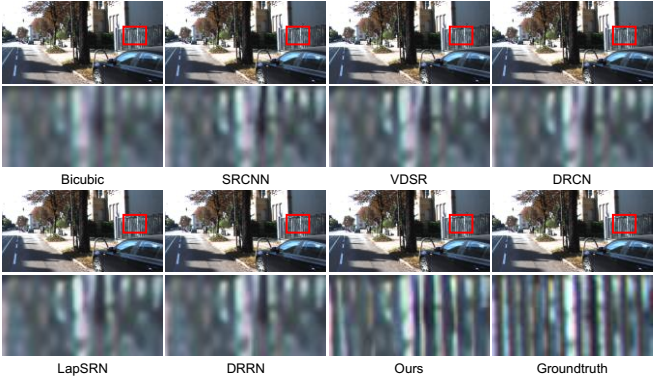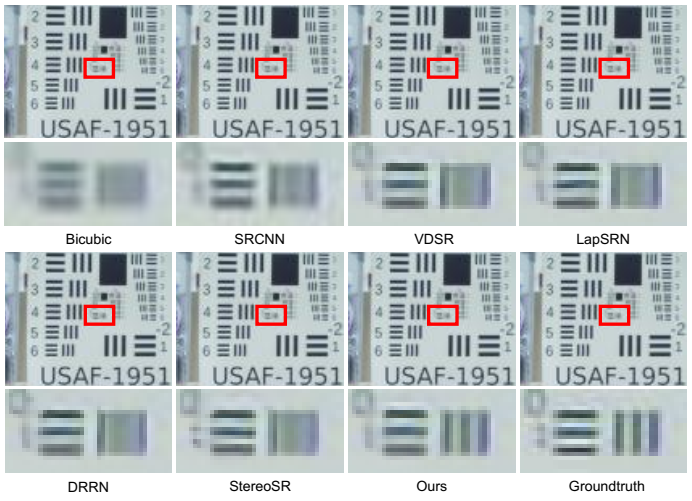Pytorch implementation of "Learning Parallax Attention for Stereo Image Super-Resolution", CVPR 2019
Figure 1. Overview of our PASSRnet network.
Figure 2. Illustration of our parallax-attention mechanism.
Figure 3. A toy example illustration of the parallax-attention and cycle-attention maps generated by our PAM. The attention maps (30×30) correspond to the regions (1×30) marked by a yellow stroke. In (a) and (b), the first row represents left/right stereo images, the second row stands for parallax-attention maps, and the last row represents cycle-attention maps.
Figure 4. The Flickr1024 dataset.
- pytorch (0.4), torchvision (0.2) (Note: The code is tested with
python=3.6, cuda=9.0) - Matlab (For training/test data generation)
- Download the Flickr1024 dataset and put the images in
data/train/Flickr1024(Note: In our paper, we also use 60 images in the Middlebury dataset as the training set.) - Cd to
data/trainand rungenerate_trainset.mto generate training data.
python train.py --scale_factor 4 --device cuda:0 --batch_size 32 --n_epochs 80 --n_steps 30- Download the KITTI2012 dataset and put folders
testing/colored_0andtesting/colored_1indata/test/KITTI2012/original - Cd to
data/testand rungenerate_testset.mto generate test data. - (optional) You can also download KITTI2015, Middlebury or other stereo datasets and prepare test data in
data/testas below:
data
└── test
├── dataset_1
├── hr
├── scene_1
├── hr0.png
└── hr1.png
├── ...
└── scene_M
└── lr_x4
├── scene_1
├── lr0.png
└── lr1.png
├── ...
└── scene_M
├── ...
└── dataset_N
python demo_test.py --scale_factor 4 --device cuda:0 --dataset KITTI2012Figure 5. Visual comparison for 2× SR. These results are achieved on “test_image_013” of the KITTI 2012 dataset and “test_image_019” of the KITTI 2015 dataset.
Figure 6. Visual comparison for 4× SR. These results are achieved on “test_image_004” of the KITTI 2015 dataset.
Figure 7. Visual comparison for 2× SR. These results are achieved on a stereo image pair acquired in our laboratory.
@InProceedings{2018-LearningforVideoSuperResolutionthroughHROpticalFlowEstimation-LongguangWang--,
author = {Longguang Wang and Yingqian Wang and Zhengfa Liang and Zaiping Lin and Jungang Yang and Wei An and Yulan Guo},
title = {Learning Parallax Attention for Stereo Image Super-Resolution},
booktitle = {The IEEE Conference on Computer Vision and Pattern Recognition (CVPR)},
year = {2019},
}
For questions, please send an email to wanglongguang15@nudt.edu.cn






